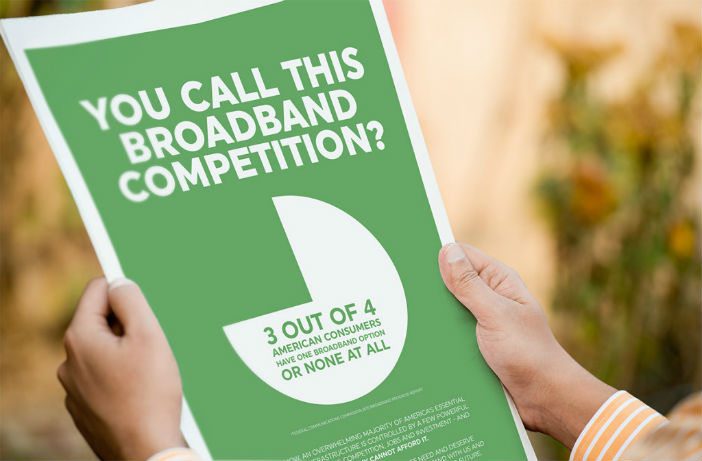WASHINGTON – In a tongue-in-check effort to highlight a perceived lack of competition in the broadband space, a group of telecom companies and trade groups launched a faux pharmaceutical campaign for Competify.
The campaign, which included a full-page ad in The New York Times, notes that “3 out of 4 Americans have one broadband option or none at all.” The website and ad urge the American people to tell the Federal Communications Commission to try Competify today.
“America’s broadband future is at the tipping point,” the ad notes. “A few huge Internet gatekeepers now dictate when, where and how much you pay for the broadband access on which we increasingly depend for our businesses, homes and livelihoods. And worse, these companies overcharge both consumers and businesses billions of dollars every year, imposing a huge cost on the U.S. economy. These companies are suffering from chronic broadband access control issues.”
The Competify campaign includes the Ad Hoc Telecommunications Users Committee, Broadband Coalition, BT, the Competitive Carriers Association, CompTel, the Computer and Communications Industry Association, Engine, Level 3, Public Knowledge, Sprint and XO.
Lack of competition in broadband is a divisive issue for the FCC. In September, FCC Chairman Tom Wheeler said in a public speech, “Users cannot respond by easily switching providers. As a result, even though there may be competition, the marketplace may not be offering consumers competitive opportunities to change providers, especially once they’ve signed up with a provider in the first place.”
Wheeler continued, “My goal is not to criticize, but to recognize that meaningful competition for high-speed wired broadband is lacking and Americans need more competitive choices for faster and better Internet connections, both to take advantage of today’s new services, and to incentivize the development of tomorrow’s innovations.”
On the other side, Commissioner Ajit Pai, the FCC’s most vocal Republican, has staunchly defended the state of broadband completion in the U.S., and said at an FCC meeting in May that the U.S. market was more “robust” than it had been given credit for, pointing to the rapidly developing state of mobile wireless.
CTIA argued that 93% of Americans have the ability to choose from among three or more mobile broadband providers, while 82% can choose from among four or more broadband providers. CTIA pointed out that 39.6% of Americans in rural census blocks have four or more mobile broadband providers, and that 72% of those same rural Americans have access to three or more mobile broadband providers.
